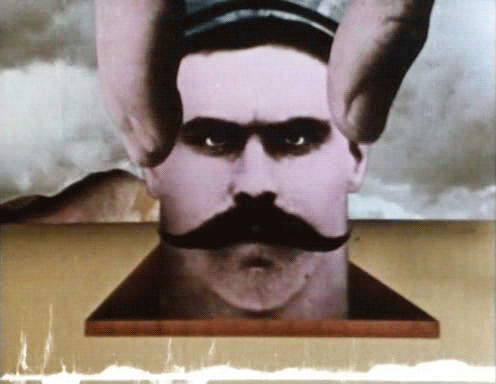[Verse: Buck Dharma & Eric Bloom]
With a purposeful grimace and a terrible sound
He pulls the spitting high-tension wires down
Helpless people on subway trains
Scream bug-eyed as he looks in on them
He picks up a bus and he throws it back down
As he wades through the buildings toward the center of town
[Chorus: Buck Dharma & Eric Bloom]
Oh no, they say he's got to go
Go go Godzilla, yeah
Oh no, there goes Tokyo
Go go Godzilla, yeah
[Guitar Solo]
[Chorus: Buck Dharma & Eric Bloom]
Oh no, they say he's got to go
Go go Godzilla, yeah
Oh no, there goes Tokyo
Go go Godzilla, yeah
[Guitar Solo]
[Bridge]
Godzilla (Zilla, zilla)
Godzilla, Godzilla, Godzilla, Godzilla
Godzilla, Godzilla, Godzilla, Godzilla
Godzilla, Godzilla, Godzilla, Godzilla
Godzilla, Godzilla
臨時ニュースを申し上げます (Godzilla, Godzilla)
臨時ニュースを申し上げます (Godzilla, Godzilla, Godzilla, Godzilla)
ゴジラが銀座方面に向かっています (Godzilla, Godzilla, Godzilla, Godzilla)
大至急避難してください大至急避難してください (Godzilla, Godzilla, Godzilla, Godzilla, Godzilla, Godzilla)
(Godzilla, Godzilla, Godzilla, Godzilla, Godzilla, Godzilla)
[Chorus: Buck Dharma & Eric Bloom]
Oh no, they say he's got to go
Go go Godzilla, yeah
Oh no, there goes Tokyo
Go go Godzilla, yeah
[Outro: Buck Dharma & Eric Bloom]
History shows again and again
How nature points out the folly of man
Godzilla
History shows again and again
How nature points out the folly of man
Godzilla
History shows again and again
How nature points out the folly of man
Godzilla
History shows again and again
How nature points out the folly of man
Godzilla

































































